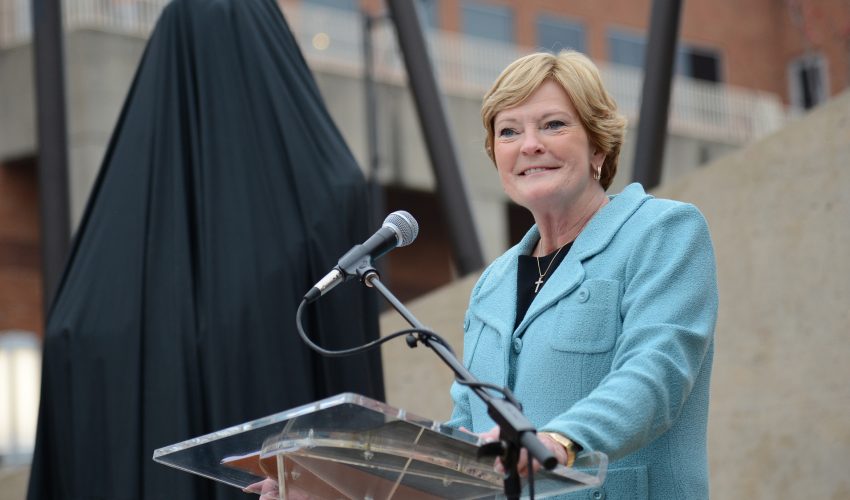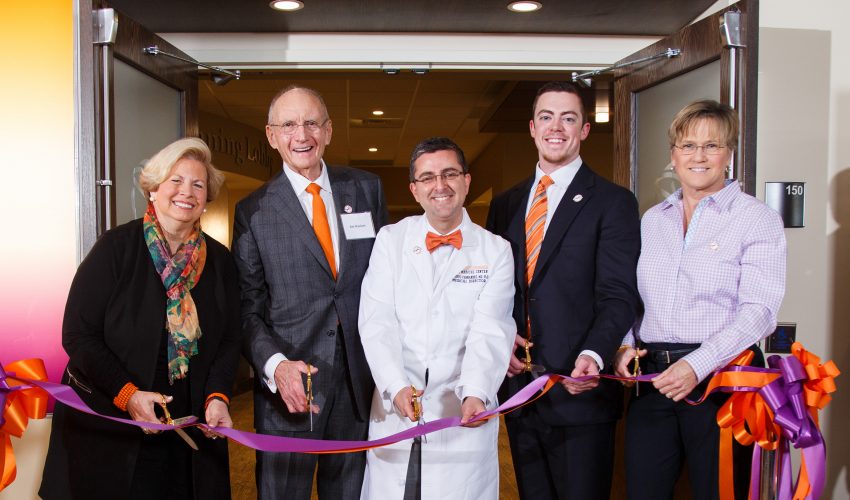When legendary basketball coach Pat Summitt announced that she had early-onset Alzheimer’s Disease, people gasped.
The longtime leader of the University of Tennessee Lady Vols and the winningest coach in NCAA basketball history was known for her steely-eyed determination to win and her knowledge of every aspect of the game.
It seemed impossibly cruel that she faced a future of diminishing mental sharpness as the disease attacked her brain.
But before anyone could utter a word of dismay, Summitt also announced her resolve to battle the disease. She would remain active and involved in her team, continuing to live her life much as she did before the diagnosis, right up to her death in 2016.
To ensure the fight would continue after she was gone, she launched The Pat Summitt Foundation to fund research to find a cure for Alzheimer’s. In doing so she left a lasting legacy, one that helps patients and their families face the disease with the same determination she did.
“What drives us and motivates us every day is that it’s a huge privilege to execute what Pat set out to do,” says Patrick Wade, executive director of the foundation.
“We have a comprehensive approach of patient care, caregiver support, research and education and are passionate about all of those elements. We are excited that The Pat Summitt Clinic is doing all of those things and doing a great job of it.”
“Put away your hankies. There’s not going to be any pity party. We’re going to fight, and we’re going to fight publicly.”
— Pat Summitt, in her letter announcing the creation of the Pat Summitt Foundation

At the clinic
A diagnosis of Alzheimer’s Disease can terrify both the patient and the family. The loss of memory and mental acuity is hard to deal with, and many are paralyzed by the thought that the patient will become someone lesser than who they are today.
Summitt addressed that when creating the foundation, noting that one focus would be advocacy for patients who “despite the stigma of the diagnosis, possess far more abilities than disabilities — yet who too often are told to quit living.”
The Pat Summitt Clinic at The University of Tennessee Medical Center, created through a partnership between the foundation and the medical center, opened in December 2016.
- Alzheimer’s patients and their families arrive to find a team of caring professionals who will help them understand what they are facing and guide them on how to manage their lives through the course of the disease.
- The first visit is comprehensive for both patient and family, with cognitive function testing, meetings with a neurologist, social work and more to fully understand their status and to begin a relationship with their treatment team.


“Our approach goes beyond diagnosis and treatment of a medical condition — we pay special attention to the patient as a person and the family as a unit,” says Dr. Roberto Fernandez, medical director of the clinic.
“Caring for our patients is a big part of what we do, but we also focus on the caregivers who face enormous challenges. They must learn about the condition, how to cope and deal with the changes they see in their loved one over time, and what steps to take as they plan for future care.”
Since the clinic is also dedicated to researching Alzheimer’s Disease, eligible patients may be asked if they want to participate in a clinical trial of an experimental treatment, or in basic research to help understand the disease.
“I personally do research with early-stage Alzheimer’s patients and a control group of healthy individuals, measuring the brain’s responses to visual stimuli,” says Dr. Fernandez. “We are looking for new ways of detecting the disease very early on, perhaps before symptoms start, because we know that treatments coming up in the future will be most effective if started early.”

Still making a difference
Though she is no longer here, Summitt’s decision to go public with her Alzheimer’s diagnosis inspired people to face their own fears of the disease.
“What Pat was really appreciated and celebrated for was that she wanted to continue living her life, and to serve as an example for others. To say that even with this diagnosis you can continue to live your life,” says Wade. “I get emails from people who say they noticed signs of Alzheimer’s that they were afraid of getting checked out. But they decided to see their doctor because Pat did it.”
“I hear from patients and families all the time who comment on how much Pat did to fight this disease,” says Dr. Fernandez.
“It empowers them and gives them a sense of hope.”




